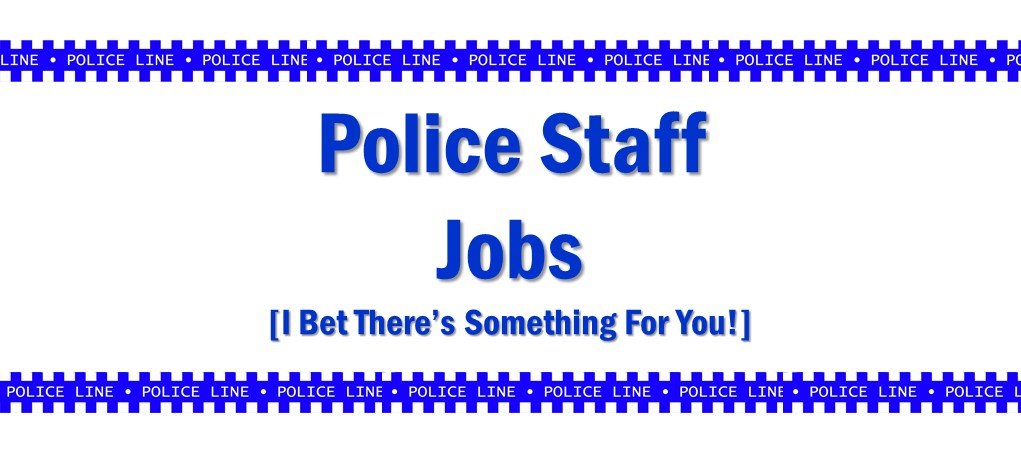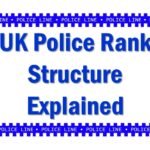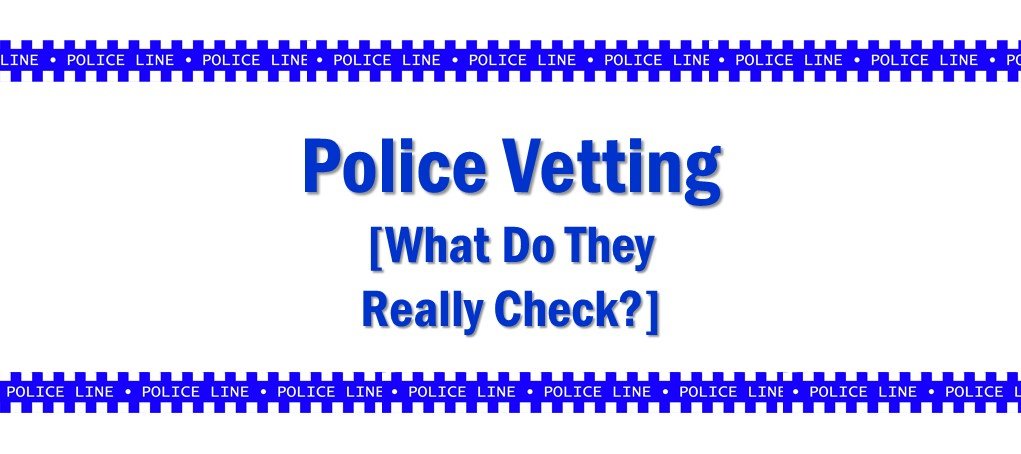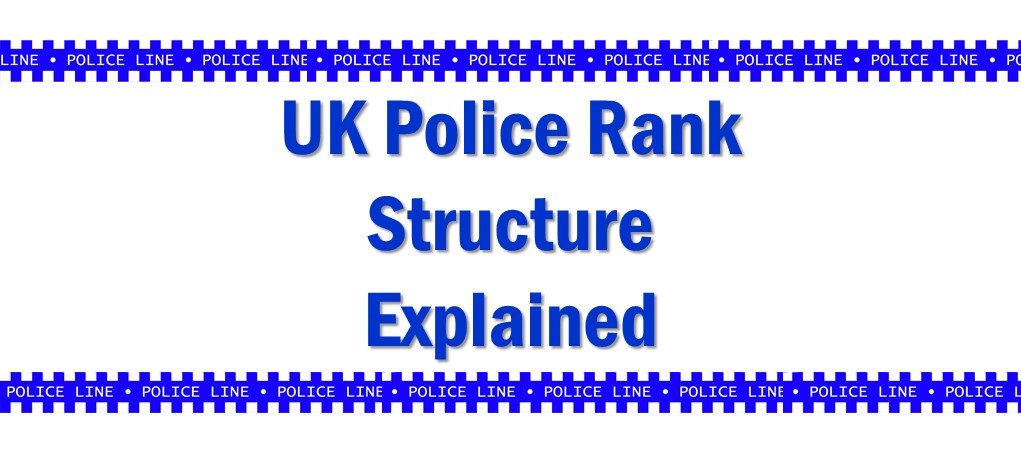There are a number of different Police Officer and Police Staff Jobs within policing, all of which require different skills and abilities. Here, we will focus on police staff roles, these were previously called police civilian roles; hence the title of this article. There are over 100 roles within policing that are not the role of a police officer. These roles are integral to policing.
- Police Staff Roles
- Audit & Review
- Buildings & Estates
- Business Continuity
- Business Development
- Call Handlers / Dispatchers / Control Room Operators
- Civilian Investigating Officers / Investigation Officers
- Collision Investigators
- Communications Officer
- Covert Authorities
- Crime Centre Officer
- CSI/ SOCO
- Dedicated Decision Makers
- Detention Officer / Custody Officer
- Digital Forensics
- Digital Innovation
- Vetting Officer
- Domestic Abuse Coordinators
- Disclosure Officer
- Finance
- Financial Investigator
- Fleet Services
- Forensic Officers
- Front Office / Enquiry Office
- Health and Safety
- Human Resources
- Identification Officers
- Information Services
- Intelligence Analyst
- Legal Services
- Logistics/ Duties Planning Officers
- Mechanics
- Occupational Health
- Office Managers
- Operations Planning
- Performance Analyst
- Personal Assistants
- Police Community Support Officer
- Researcher
- Training
- Typists
- Warrants Officers
- Witness Care
Police Staff Roles
The role of police support staff varies greatly between forces and can often mean the difference between a police officer being able to effectively do their job and getting stuck behind a desk.
Police support staff can perform a variety of vital tasks that allow police officers to get out on the streets and be where the criminals are. They can be involved in anything from store detective work to fingerprinting and photographing suspects, to checking out information on wanted suspects and writing up reports.
Police staff roles are often highly skilled roles that are essential to keeping policing going and serving the communities.
Audit & Review
This may not sound sexy, but most forces will have some form or an audit function. These audit teams will do pro-active and reactive work. They will check areas or business to ensure that processes and performance are as good as the can be. For example, the audit team may look at how the force manages weapon crime to ensure that the processes are as fluid as they can be.
On the flip dies, they may work reactively and look at business areas after issues have been flagged, either by process failure or an outside review body.
Buildings & Estates
All policing functions have to exist within buildings. As such all forces will have a buildings / estates unit which will look after everything relating to the buildings that the officers and staff work in. This will range from trouble shooting issues as they arise, i.e a power failure to ensuring that buildings are up to specifications. It is essential that all functions of a building are working efficiently at all times.
Business Continuity
Police forces will have a business continuity department. A business continuity department has responsibility for planning for the ‘what-if’s’. Due to the nature of policing, a police force cannot survive a loss of service or facilities for any period of time. Business Continuity officers will plan for different scenarios, such as the loss of telephony of if a building floods. They will create plans to be followed in every such scenario.
Business Development
Most police forces will have a business development department. This will look at opportunities for the business to develop either out of statutory necessity or in order to make business processes run smoother. It is largely a project management role.
Call Handlers / Dispatchers / Control Room Operators
Call Handlers / Dispatchers / Control Room Operators are better known as the persons that will take your 999 Cor 101 Call. They will then run checks in relation to the information that they have received and deploy the most appropriate patrol to the incident. This is an extremely demanding role.
Civilian Investigating Officers / Investigation Officers
Investigating Officers (IOs) are as the name suggests; investigators. Investigating Officers were introduced into policing nearly two decades ago. Their remit is to relieve the strain of operational police officers and detectives, by giving civilian officers, warranted powers (under the Police Reform Act 2002) in order to investigate crime. If you want to investigate crime and interview persons, but do not want to be a police officer, this is the police staff role for you.
Collision Investigators
Collision Investigators investigate road traffic collisions that result in fatal or life-changing injuries for any party. Collision investigators will map the scene of an accident and work out what happened. They also have a proactive role in reducing further death and injury on the road network.
Communications Officer
Just like most organisations, the Police have Communications Officers, these work with local and national media as well as social media to try and connect the Police and the Public. Communications Officers will also be responsible for internal communications. An example of this may be if there is a new process or piece of software is being rolled out, they will create a communications campaign to ensure everybody is aware.
Most Forces will employ several Communications Officers
Covert Authorities
Covert authorities are the conduit between the police and external companies that data may be requested from. For example, if the police want access to data from Facebook in order to protect somebody of solve a crime, this data will be applied for thorough the Covert Authorities department. They will check that the application meets all of the legislative requirements before asking for the data. The data companies are then only dealing with one department within each police force.
Crime Centre Officer
Crime Centre Officers can also be known as ‘Crime Desk’. The Crime Centre are responsible for taking information provided by members of the public, deciding whether a crime has occurred and then generating that crime on the individual forces crime system. They will check that all of the details are correct and meet national standards.
CSI/ SOCO
Most people will have seen an episode of CIS in their lifetime! Crime Scene Investigations or Scenes of Crimes Officers collect evidence at scenes of crimes, the may take blood samples, fingerprints, collect items that they believe have been used in a crime and send them off for further analysis. CSI / SOCO are essential personnel in managing and understanding crime teams.
Dedicated Decision Makers
This is one of the lesser-known Police Staff Roles within Policing. Dedicated Decision Makers (DDMs’s) are employed to review crime. They will work to the NCRS (National Crime Recording Standards) and the Home Office Counting Rules (HOCR) to ensure that the Police are ethically and accurately criming offences.
Detention Officer / Custody Officer
This is more of the mor commonly known Police Staff roles. Detention Officers or Custody Officers, depending on what they are called in the Force, work within the Police custody suite. The Detention Officers are responsibly for looking after a detainees (somebody who has been arrested) welfare whilst they are in custody. This starts from ‘booking in’ the detainee – which means taking personal details from the person to ensuring they get medical attention if needed, to taking fingerprints and ensuring the general welfare of the detainee is looked after whilst they are in custody.
Digital Forensics
Digital forensics is a newer Police Staff role within policing. Digital forensic officers are responsible for the recovery and extraction of digital media in order to support criminal investigations. This can vary massively from going out to the local store to extract some CCTV in relation to a robbery, to getting damaged hardware that needs data recovered from it.
Digital Innovation
Digital Innovation is another newer role within Policing. Policing has been undergoing a digital revolution for several years now. In order to make officers more efficient and give them access to the information they need, on the go, new technology needs to be developed or sought in order to keep officers up to date and efficient. Digital innovation is definitely on the IT side of the business.
Vetting Officer
Everybody who joins the police, whether as a Police Officer or as a member of Police Staff, will undergo vetting. Also, if anybody has a role that needs vetting (DBS check, previously CRB) they will have to undergo vetting which will be completed by the Police. Vetting officers are the people that do the research into a persons educational, employment, financial, criminal and personal life in order to assess whether they are suitable for the role they are undertaking.
Domestic Abuse Coordinators
Domestic Abuse Coordinators have a slightly different role in each force. Largely, their role is to liaise between victims of domestic violence and different service providers in order to get the victims the support they need.
Disclosure Officer
Disclosure officers work within file preparation units also called Criminal Justice Units. Disclosure Officers are responsible for ensuring that all of the relevant materials are disclosed to the court. Traditionally, this has been a police officer role, however, over recent years, police staff have been employed to complete the role.
Finance
Every police force will have a finance section. There are a lot of moving parts within policing which cost money, from the maintenance of vehicles to the repair of police buildings, to the most important element of all; paying people! There are a number of different roles within finance; admin, payroll officer, to qualified accountants.
Financial Investigator
The role of the Financial Investigator is a really interesting one – if you like numbers. Financial investigators will investigate the finances of criminals in order to work out where money has come from and gone to in order to establish if there are any nefarious dealings behind the money. Financial investigators will work closely with detectives and may be required to attend court as professional witness.
Fleet Services
Without its fleet of vehicles, a police force is grounded. Fleet will look after everything in relation to the vehicles of the force. This can be everything from the hiring of vehicles to the mechanics actually fixing the vehicles. Fleet is another broad department that offers roles from office admin through to vehicle technicians that fix the cars, vans, bikes and boats that the force uses.
Forensic Officers
The role of the forensic officer is different to that of the CSI. Forensic officers are a largely office-based role that involves the coordination of forensic samples, getting sent to and from the labs whereby they are tested. Forensics officers will ensure that the correct procedures are followed and that records are accurately updated.
Front Office / Enquiry Office
The front office, also known as the enquiry office, is run by police staff. They have an integral role in policing. They are literally the face of policing. This is a very varied role, they will do everything from taking in lost property to registering sex offenders, facilitating solicitors going in and out of custody, taking reports of crime and answering every weird and wonderful enquiry in between. This really can be a demanding role but is fantastically varied.
Health and Safety
Health and Safety have an important role in all organisations. Due to the size of Police Forces, most will have their own, in-house, health and safety department. There is normally a hierarchy of roles within these departments from admin through to head of Health and Safety, who needs to be accredited in their field.
Human Resources
No organisation can run without human resources. All forces have a human resources departments, from recruitment to positive action directorates, there are a vast number of human resources roles available in any police force.
Identification Officers
Hopefully, you’ve never been in a custody and had to have your photo taken. Or, on the other side, have been a victim of crime and have had to go and take place in an ID parade; these are both done by what are called Identification Officers. Identification Officers role is to carry out identification procedures in accordance with the guidance set out in the Police and Criminal Evidence Act 1984, and force policy. In doing this the Identification Officer must ensure that the Officer in Charge (OIC), Crown Prosecution Service (CPS), and defence solicitors are constantly updated and that the welfare of witnesses are looked after
Information Services
All police forces are built on a complex IT infrastructure. It is essential that this IT runs smoothly. If any of the police systems stop working, there are big officer safety implications as well as not being able to their roles properly.
Intelligence Analyst
Intelligence analysts are responsible for spotting trends in crime data. They will look at MO’s of offenders and try and link them to offences, as well as directing officer where to go in order to prevent further crime occurring.
Legal Services
All police forces will have their own in-house legal services that are responsible for ensuring that the policies and the procedure that officers are undertaking are legal, as well as this, they are responsible for any legal claims against the force.
Logistics/ Duties Planning Officers
Logistics officers, do what the name suggests. They sort out the logistics for the force. They ensure that there is enough officers on duty, when and where they are needed. If there is an even happening, they will make sure that they have the right staff with the right skills and abilities on duty at the right time.
Mechanics
Police officers need vehicles to get around, cars, vans, motorbikes, boats, helicopters, all of which need maintenance. Most forces will have their own, in-house mechanics that will deal with these. Some forces will share mechanics with another service, such as the Fire Brigade.
Occupational Health
All police forces will have an Occupational Health unit. There will be a combination of medically trained personnel working in there as well as Counsellors and experts in wellbeing. There will also be a whole administrative function that will work within the unit.
Office Managers
Officer managers work within various different units in policing. They will coordinate what the officers working within that unit are doing and ensure the smooth running of the administration of the unit.
Operations Planning
When there are events occurring in the force area, operations planning officers will coordinate between the police, council, event organisers etc to ensure the smooth and safe running of the event.
Performance Analyst
Performance analysts are responsible for performance data in the force. They will flag any changes in performance statistics as well as feeding performance data into the Office for National Statistics.
Personal Assistants
Senior ranking officers will have personal assistants which will control their diaries, book meetings for them, coordinate meetings, take minutes and ensure they have the relevant materials available to them when they need them.
Police Community Support Officer
A Police Community Support Officer plays an invaluable role within policing. They have the remit of liaising with the community and dealing with long-term problem-solving.
Researcher
A lot of departments will employ researchers. This can be a very broad role and normally involved researching policing and partner system to pull together reports on individuals, locations or themes.
Training
Every police force has a training department. These are responsible for the initial and ongoing training of police officers and police staff. This can incorporate everything from crime training to computer training as well as specialist technical skills. Police training departments normally have a combination of police officers and police staff working in them.
Typists
On occasion transcripts of interviews and meetings are required. Typists will do this.
Warrants Officers
When warrants are issued for a person’s arrest by the courts, warrants officers have warranted powers to arrest those people.
Witness Care
The witness care officer is the liaison between the Crown Prosecution Service (CPS) and the Police. Their role is to support victims and witnesses in going to court.
If you are successful in applying for any of these roles, you may be required to complete a fitness test (roles such as detention officer). Prior to being offered a formal offer of employment, you will be subject to police vetting.
This is a list of some of the most popular police staff roles in policing. Have you seen a police staff job that you are interested in? Why not check out your local force(s) to see if they are currently recruiting?






